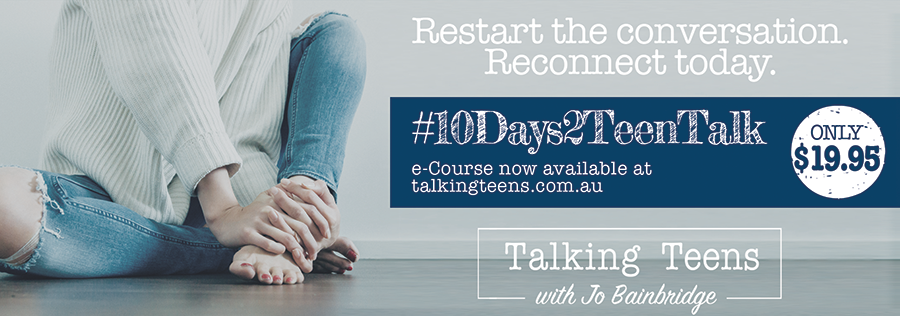 The concept of fatherhood has undergone a radical transformation in recent decades. Men are now expected to take a much more involved and empathetic role in the raising of their children. Particularly when compared to the societal expectations of their own fathers, just one generation ago.
The concept of fatherhood has undergone a radical transformation in recent decades. Men are now expected to take a much more involved and empathetic role in the raising of their children. Particularly when compared to the societal expectations of their own fathers, just one generation ago.
But while this new paradigm of fatherhood has generally been a positive move for children, parents, families and society at large, it has also seen an increase in the number of fathers struggling with mental health conditions, such as depression and anxiety.
For these men, who may already be battling against the entrenched ‘she’ll be right, mate!’ attitude toward mental health conditions in men, there is a further complication of how to reconcile their mental health concerns with their role as a father. What does it mean to be a depressed father?
Little is known about the impact of depression on fatherhood, there is a dearth of research conducted into this area. In a positive move, some investigation has begun in recent years into the impact of post-natal depression in new fathers, but we still know so little about how mental illness affects fathers at other stages of their parenting journey.
According to COPE Executive Director Nicole Highet, current statistics are that one in four women and one in six men will develop depression at some point in their lifetime. For men specifically, it is often the 38 to 45 year old age group, a time when men are most likely to be fathers of teens or tweens, who are most affected.
“There are likely to be several risks and stressors at this time,” Ms Highet says.
“Often there are additional financial pressures, such as school fees, and as children grow up and become more independent, this can bring about changes and adjustments in relationships with their partner or children.”
In fact, Ms Highet suggests it is often quite common for an incidence of depression to start much earlier in men, but not be diagnosed until some years later, due to the potential for men to attribute their depressive symptoms to other things.
“They put the signs and symptoms of depression in themselves down to the general tiredness and adjustment that goes with having a baby – hence symptoms linger over time and often help is not sought until a crisis is reached,” she said.
“Also, many dads don’t identify depression in themselves as they are predominantly focused upon the mother – and hence do not feel that their depression is warranted or justified.”
While some depression resolves of its own accord, most does not, and Ms Highet warns that unidentified and untreated depression is more likely to worsen.
“Depression is extremely debilitating,” she said.
“A father with depression will have little or no interest or energy for their own life – let alone those around him. Having children takes time and investment – not just financial but also in terms of interest and energy.
“When you have depression, this is depleted, so the role of fathering is extremely difficult, as the father’s own resources are often ‘empty’.”
Despite gains made in recent years with regard to men speaking out and seeking help for mental health concerns, Ms Highet says we still have a long way to go, thanks in large part to our ‘blokey’ Australian male ethos.
“Our culture still leads many men to feel that they need to be strong and, particularly in the context of fatherhood, a provider and a protector,” she said.
“As the adjustments to parenthood are varied, ongoing, and often so different and unique to any other stages of life, this can leave many dads feeling vulnerable and disorientated.
“These days, men are also often expected to be a father in a way that is likely to be quite different from the role model of their own fathers – so there is no strong reference point.”
Clinical Psychologist Dr Simon Kinsella agrees the combination of parental depression occurring at the crucial ‘coming of age’ period for tween and teen children can make this an extremely challenging time for families. He suggests the impact of this rests on several factors, including the severity of depressive symptoms, the communication between parents and children, and other social supports around the family.
“Tween and teen years are a challenging time for families as they adjust to children becoming more mature and independent,” Dr Kinsella said.
“If that occurs at the same time that fathers are becoming depressed it can increase the rift between father and child. This is especially the case when the father’s symptoms include being irritable, withdrawing from conversation, and being more unapproachable.”
With communication paramount in how well teenagers respond to parental depression, Dr Kinsella recommends parents be very open about their mental health issues. “When children understand the reasons for a change in their parents’ behaviour or mood it is far easier for them to cope,” he said.
“It is also less likely that they will confuse depression with some other problem in the relationships between themselves and their fathers.”
One Man’s Story
pact of mental health on the experience of fatherhood.
Two decades on from his diagnosis of depression and anxiety, James still takes an “intense medication regime”, of mood stabiliser, anti-depressant and anti-psychotic drugs.
He describes his experience of mental illness as one of a high level of self criticism and feeling less than adequate. While it was always difficult when he was a young single man, his problems intensified when he became a partner and father.
“In hindsight, it was 90pc happening in my head, it’s one of those awful things that feeds itself,” he says.
“When that only affects you, it’s certainly less to carry than when it affects your child or your partner.”
For James, who is now separated from his children’s mother, his greatest fears are around how his illness would impact his relationship with his sons, aged 11 and 14.
“There’s a real stigma there,” he says.
“Up until very recent times I’ve just framed it using language like, ‘I’m not well, I’m sick’. But a couple of weeks ago, there was an opportunity to speak to my eldest son about it and I used the diagnosis while talking about it at dinner.
“For any parent, you don’t want your kids to see you as broken or weak, even though you may feel that.”
While he says he does his best to “shield the kids” from the effects of his illness, he can identify times when his illness impacted on them. Though he is now better at accepting the struggles his illness brings to his parenting.
“I still have days, less frequently now, thank God, when I’m barely able to get them up, to make lunch and get them to school, for no apparent reason why,” he says.
“Some days I just tell myself I’m doing my best, and then there’s other days, when I’m feeling more fragile and I might
be nearly in tears because I realise we’re half an hour late.”
Having battled depression and anxiety for more than
20 years now, including a long period where he admits to
“self medicating” with drugs and alcohol, James now feels
more capable in his self management.
“I’ve learnt not to beat myself up over it,” he said.
“I’ve learnt to ride the storm and cut myself some slack, because it does pass. In the past when I was fighting it, I was just making it worse.”
Recognising that a man in your life might be struggling with depression is just the start, but it can be difficult to know what to do next.
We asked Dr Simon Kinsella for his top tips on supporting a dad with depression.
Communicate: if you think a dad is struggling, raise the topic with him. But better still communicate more frequently when men become dads. Check in regularly with simple questions. How are you going? Are you getting enough sleep? Is there anything we can do to support you? If you are a father yourself it can be helpful to share your own parenting stories.
Normalise: if a dad is admitting to depression it helps them to know that it is relatively common.
Strategise: help them find resources to support them through this time. Also, stay connected with them. Mothers and fathers do better when they have good social support
Follow-up: check in with them regularly
Review: if a dad tells you their support or treatment is not working, talk to them about how they might address it. For example, if they are seeing a counsellor and not making progress, talk to them about telling the counsellor they are feeling stuck, and asking the counsellor what they should expect from treatment.









